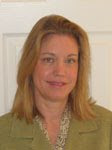 As an extension of our Member Appreciation Month series of member interviews, we will continue to introduce you to more of our members, individuals who work to advance ethical research on a daily basis. Please read on to learn more about their professional experiences, how membership helps connect them to a larger community, and what goes on behind-the-scenes in their lives!
As an extension of our Member Appreciation Month series of member interviews, we will continue to introduce you to more of our members, individuals who work to advance ethical research on a daily basis. Please read on to learn more about their professional experiences, how membership helps connect them to a larger community, and what goes on behind-the-scenes in their lives!
Today we’d like to introduce you to Christian LaMantia, President of Research Compliance Counselor, LLC.
When and why did you join the field?
In 1997, after working in a research lab by day and completing my MBA in marketing and technology management at night, I decided to pursue my dream of commercializing new technologies at the university I was working for at the time.
The VP for research who interviewed me stated that she didn’t have any openings, but if I would take a job in research administration that included some “compliance” responsibilities, she could get me into the new tech transfer position she was creating in a “couple of months.”
After the interview, I went in search of information about the federal regulations on human subject research, as I had no idea what she was talking about. This was the first of many nights over the next decade that I would find myself in bed with 45 CFR 46.
After the interview, I went in search of information about the federal regulations on human subject research, as I had no idea what she was talking about. This was the first of many nights over the next decade that I would find myself in bed with 45 CFR 46.
I never did get the position in tech transfer. Actually, the VP who hired me resigned my first day on the job. But after 13 years of painstaking (and sometimes heartbreaking) work in this field, I have to say I have no regrets. We get to work with amazing, brilliant people and we have a chance to make a difference in the lives of both the subjects and the physicians/scientists. I am definitely ready for the next 13 years!
What is your favorite part of your job?
As a regulatory consultant, I get the opportunity to talk about research compliance at every level of an organization, from presidents and IRB directors, to investigators and trainees. I am always gratified to share with them that they are not alone in their challenges and that there are reasonable solutions.
At conferences, I think we tend to discuss the very best and very worst case scenarios in our field, and are hesitant to address the sometimes ugly but benign details (85 percent of the workload) that fall in the middle. When I share my personal stories, clients often say, “I thought this kind of stuff only happened at our institution.” Relief washes over their face, the light bulb goes on, and then they are ready to tackle whatever challenge they have hired me to help them with. This is my favorite part of the job.
What are three websites you visit on a daily basis?
What was the last book you read?
I just finished reading The Immortal Life of Henrietta Lacks. Great book!
Why did you join PRIM&R?
Initially I joined to learn more about the field. Over the years I’ve stayed because of the great membership [benefits].
What is your favorite member benefit?
I like the Newsletter as it saves me time and effort by linking me to articles and updates.
With whom have you made a lasting professional connection through your membership?
Ada Sue Selwitz’s humor always reminds me how important it is to be true to yourself in this job.
What do you believe is a key challenge facing the field of research ethics?
I think our field is facing another period of dramatic change. It is no longer “good enough” to have a well-run IRB, IACUC, or conflict of interest committee. All elements of a research compliance program must be coordinated and transparent as research becomes less discipline-specific. Professionals in our field not only need research ethics training to succeed, but also business management, interpersonal skills, and technology training. Working for researchers in the field has taught me that efficiency and good customer service not only help to promote research, but actually improve human subject protections.
Thank you for being part of the membership community and sharing your story, Christian. We hope you can join us in San Diego for Rebecca Skloot’s keynote address and our Research Ethics Book Group lunch!
If you’d like to learn more about becoming a member, please visit our website today.

No comments! Be the first commenter?